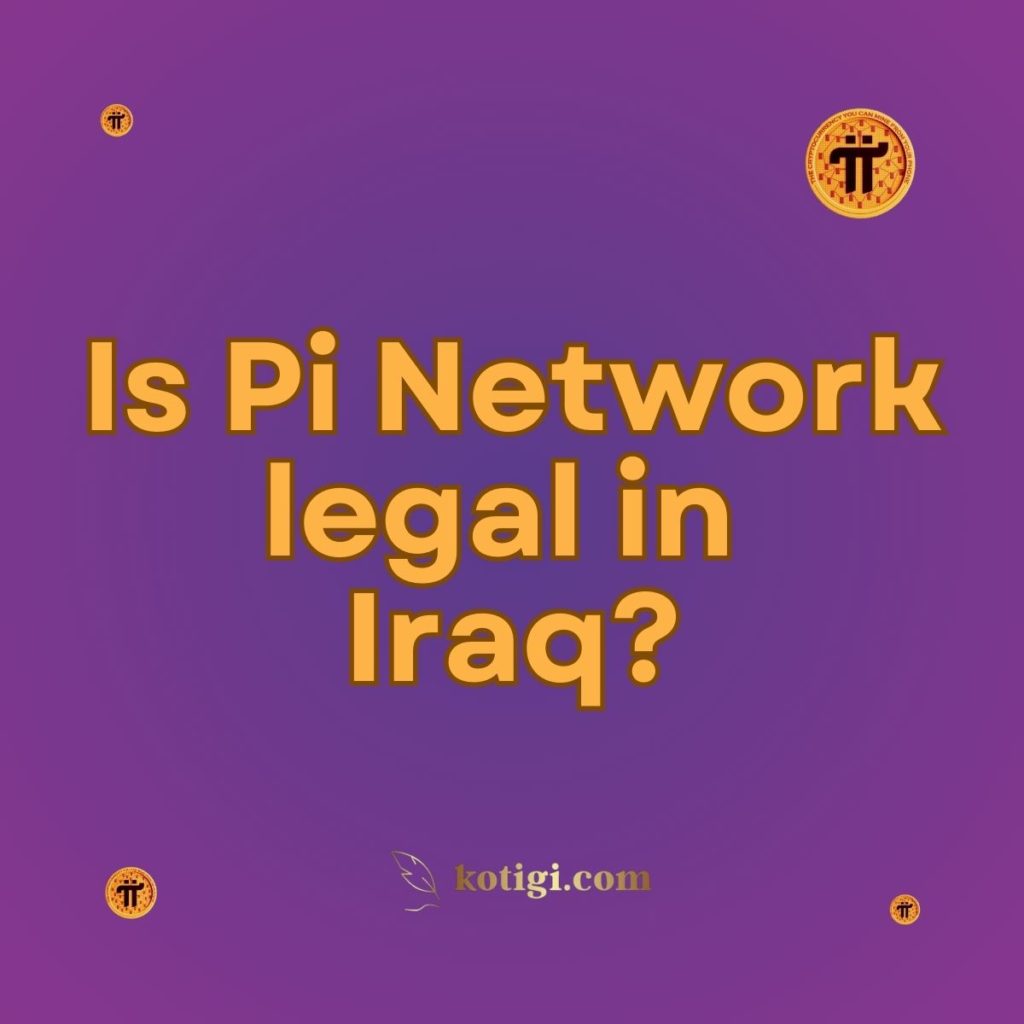
Is Pi Network legal in Iraq?
Yes, Pi Network is currently legal in Iraq, but the country has a complex and restrictive stance on cryptocurrencies. The legal environment for digital assets, including Pi Network, is shaped by cautious government policies and the position of the Central Bank of Iraq (CBI). Below is an overview of the regulatory status and legal considerations for Pi Network in Iraq:
1. Regulatory Status in Iraq
Cryptocurrencies, including Pi Network, are not specifically regulated under Iraqi law. However, Iraq has generally been wary of digital currencies due to concerns about financial crimes, fraud, and market volatility. The Central Bank of Iraq (CBI) issued a warning in 2017 against the use of cryptocurrencies, citing risks related to money laundering, terrorist financing, and economic instability.
While there is no outright ban on holding or trading cryptocurrencies on a personal level, the CBI’s stance creates an environment of uncertainty. This means that while individuals may participate in Pi Network, there are no clear legal protections or frameworks to govern their use.
2. Oversight by the Central Bank of Iraq (CBI)
The CBI oversees Iraq’s financial sector and has maintained a cautious approach towards digital assets. If Pi Network evolves to include financial transactions or if its tokens become tradable, it would likely attract the scrutiny of the CBI and potentially require compliance with existing financial regulations.
Given the CBI’s stance on cryptocurrencies, any developments involving Pi Network’s tokens—especially those that imply value transfer, investment, or exchange—could face regulatory challenges. The network must be mindful of these potential requirements and be prepared to comply with any guidelines that the CBI may enforce.
3. Anti-Money Laundering (AML) and Financial Crime Concerns
Iraq has stringent Anti-Money Laundering (AML) and Counter-Terrorism Financing (CTF) laws, particularly given its geopolitical context. If Pi Network introduces features that involve financial transactions or the exchange of tokens, it would need to adhere to these regulations to prevent illicit activities. This includes implementing Know Your Customer (KYC) procedures to verify user identities and ensuring that any suspicious activities are reported to the relevant authorities.
4. Consumer Protection and Public Awareness
Due to the lack of clear regulations governing cryptocurrencies in Iraq, consumer protection is limited. Users of Pi Network should be cautious and well-informed about the potential risks of engaging with unregulated digital assets. Pi Network must provide clear information to its Iraqi users about the risks associated with using the platform, especially in light of the regulatory uncertainty.
5. Potential for Future Regulatory Developments
While Iraq currently does not have a well-defined regulatory framework for cryptocurrencies, there is potential for future developments. As digital assets continue to gain global attention, Iraqi authorities might consider creating regulations to manage and oversee their use more effectively. If such regulations are implemented, Pi Network and similar platforms must comply to continue operating legally in Iraq.
Conclusion
Pi Network is currently legal in Iraq, but its regulatory status is uncertain due to the cautious approach of the Central Bank of Iraq towards cryptocurrencies. Iraqi users can participate in Pi Network informally, but they should be aware of the potential risks and the evolving legal landscape. As the regulatory environment for digital assets in Iraq develops, Pi Network must remain compliant with any new regulations, especially concerning AML, CTF, and consumer protection. Users should stay informed about any changes in the legal framework to minimize risks and ensure compliance.




